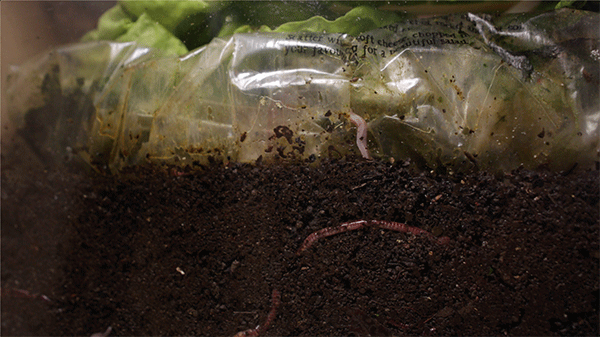The 5th of December is World Soil Day, an annual event held to celebrate soils and advocate for their sustainable management. Globally, our soils are under threat—from salinisation, from erosion, and from a loss of biodiversity. But what exactly is soil biodiversity? And what does it have to do with our own health, and with the food on our plates?

A paper published by Dr Andy Neal and his collaborators earlier this year sheds new light on our understanding of soil biodiversity. The soils beneath our feet are not just lifeless dirt; instead, they are ecosystems as “diverse as a rainforest,” according to Neal, inhabited by a vast range of different bacterial, fungal and other species. This biological diversity performs a vast range of vital functions – from recycling decomposing matter, to regulating the water and carbon cycles, to decontaminating polluted land, and even to enhancing our resilience in the face of climate change – all of which are important for maintaining the health of our planet.
Neal, a soil microbiologist at Rothamsted Research, explains that there are several different ways of measuring biodiversity in a patch of soil, the most basic of which is simply to count the number of species it contains. But with advances in genetic research techniques, scientists have been able to develop methods that allow them to understand microbiological diversity in brand new ways. One of the most novel of these new methods is to measure the average number of genes the microorganisms in the soil have in their DNA.
“Soil is a very low-nutrient environment, so to be successful, microbes have to adapt to low levels of nutrients,” says Neal. “They have to find ways of being efficient in how they use their carbon, nitrogen, and phosphorous. One of the ways they can do this is through the natural loss of genetic information.”
This genetic “streamlining,” as Neal puts it, is a random process that gives microorganisms a better chance of surviving. “The less DNA they’re storing, the less energy and nutrients they need to devote to ‘data storage’ and the more they can devote to growth,” he says.

Neal and his team of researchers used this new approach to investigate the different numbers of genes in the DNA of soil microorganisms in three different environments: permanent grassland, high chemical-input arable land, and fallow land that has been kept bare of any plants since 1959.
What they found was that the microorganisms living in the arable soil had around 645 fewer genes than those in the grassland soil, equating to around an 8.5 per cent loss. Even more depleted was the DNA of the microorganisms in the bare fallow soil, which had an astonishing 1,300, or 17 per cent, fewer genes than those in the grassland soils.
This difference is partly because there are fewer plants growing in the arable and fallow soils. Fewer plants means less ‘food’ – in the form of roots and decomposing plant matter – for the soil microorganisms, leaving them without enough energy to hold on to as many genes. But another big part of the equation is the decreased diversity of the ‘food’ these microorganisms have access to.
“When you start restricting that diversity, a lot of those genes become unnecessary,” says Neal. “The monotony of the ‘diet’ presents a circumstance where genes can be lost, because there’s no use for them anymore.”
Interestingly, it seems this pattern also plays out to some degree in the human gut microbiome. The gut microbiome is the term used for the large assortment of microorganisms that live in the human digestive system.
There is a growing body of evidence that these organisms play a significant role in the functioning of the human body – from how we digest and absorb nutrients from our food, to our mental health, to the incidence of diseases like cancer and autoimmune disorders.

We have understood for some time now that the diversity of our diets can have an impact upon our health. A 2019 American study found that a more diverse diet was associated with a reduced risk of heart disease, while a 2017 study undertaken in Iran found that dietary diversity may be associated with a decreased risk of depression.
But more recently, we’ve begun to understand that what we eat can actually affect the health and make-up of our gut microbiome. Just like in the soil, the more diverse the food we eat, the more diverse the ‘diet’ of nutrients available to the microbes in our gut. This promotes greater diversity in the microbiome, which allows us not only to digest our food better, but also to maintain better mental and physical health. For example, a loss of microbial diversity in the human gut has been associated with the incidence of Crohn’s disease, irritable bowel syndrome, and colorectal cancer.
The good news is that both in our guts and in the soil, we can reverse these losses by changing our diet.
“The loss of diversity isn’t catastrophic,” says Neal. “If you were to take that bare fallow and plant it up again, there are sufficient genes there, and they are mobile. Genes that have become essential again can sweep back through the community.”
By eating a more diverse diet, we might be able to improve our own health. And by supporting farmers to plant more diverse crops, we might also be able to help replenish the diversity of the soil.










I don’t claim to be any sort of scientist but this is really interesting stuff. How fascinating our bodies and the soils which nourish us are. To my mind it links us to the soil. People talk about us being part of nature and not separate from it. It also makes me wonder about what made the writer of Genesis describe God as making people ‘from the dust of the earth’. Interesting!